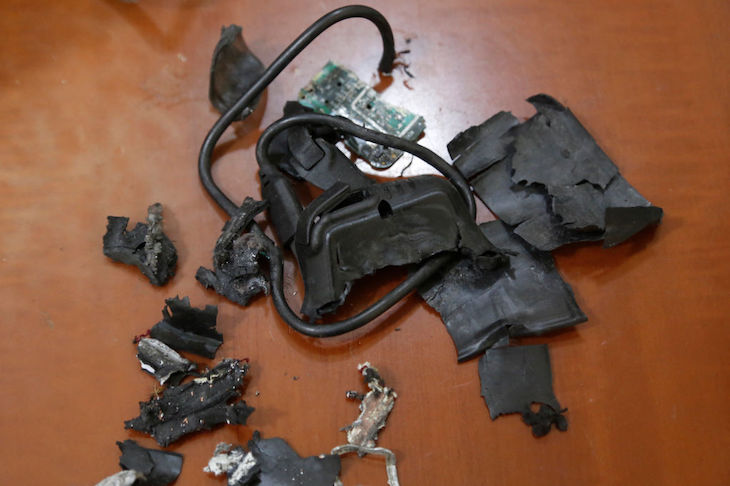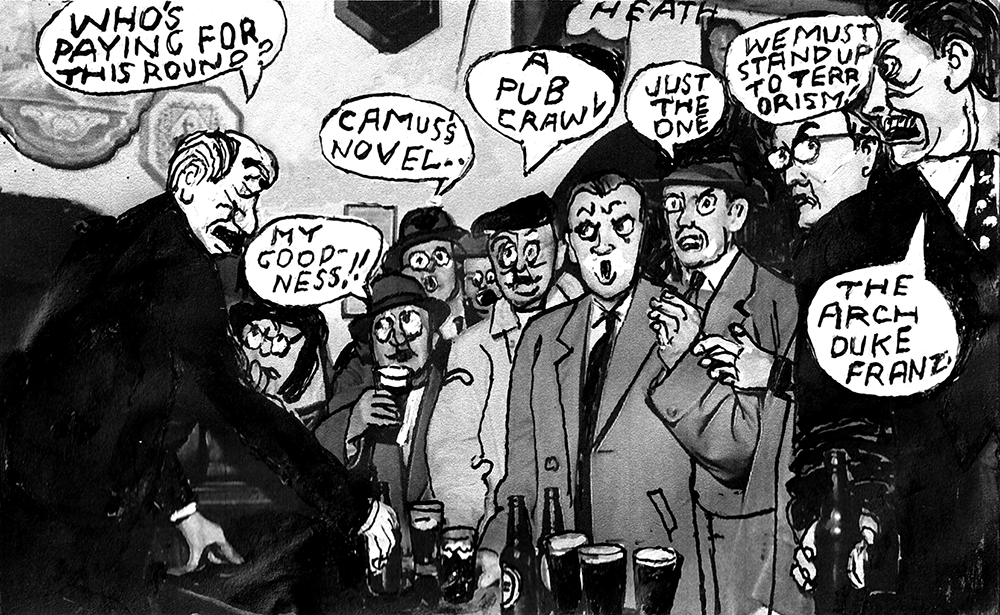Paul Wood has narrated this article for you to listen to.
Israel’s security cabinet met in a bunker in the ministry of defence in Tel Aviv on Monday night. The main item on the agenda was Hezbollah, the Lebanese militia whose missiles and rockets have forced tens of thousands of Israelis from their homes in the north. The meeting lasted into the early hours of Tuesday. At 2.26 a.m., the Prime Minister’s office issued a statement saying Israel’s war aims had been ‘updated’ – no longer just destroying Hamas in the south, but also the safe return home of everyone in the north. ‘Israel will continue to act to implement this objective.’ This seemed like a bland restatement of existing policy and didn’t excite much interest. But at 3.30 p.m. that same day, all over Lebanon thousands of pagers belonging to members of Hezbollah buzzed with the same message at exactly the same moment – and then exploded.
The message of the pager blasts was: we can get you anywhere
Israeli journalists were spun by some officials that this was a carefully calibrated step to restore deterrence on the northern border: this wasn’t the first move in an Israeli invasion of Lebanon. Hezbollah doesn’t see it that way. Its leader, Sheikh Hassan Nasrallah, reportedly issued an order for a general mobilisation. His organisation was in chaos, and humiliated; the message from the Israelis: we can get you anywhere. A Hezbollah MP, Ali Ammar, had a son ‘martyred’ in the pager explosions. He told Lebanese television: ‘War has two kinds of days, one day for us, one for the enemy… let the Israeli enemy know that no matter their deceit and trickery, we will have our day.’
It’s possible Israel’s new policy – ‘enough is enough’ – was driven by technical necessity. It must have taken months of planning to get small amounts of explosive into the pagers Hezbollah had bought from Taiwan (if that’s how it was done). The shipment apparently arrived a couple of weeks ago. Whichever Israeli unit was behind this brilliant piece of spycraft – perhaps the ultra-secret Unit 81 – they must have feared someone would tinker with one of the gadgets and the plan would be discovered. The political leadership may therefore have been rushed into updating the policy, strategy driven by tactics. Or perhaps Israel’s leaders have been preparing for a showdown with Hezbollah for a long time and this was the opening salvo.
There is plenty of evidence for that interpretation. Over the summer, leaks revealed the Israeli military plans to establish a buffer zone in southern Lebanon, once the politicians gave the order for the tanks to roll. That would please the ultranationalist members of Benjamin Netanyahu’s coalition. They have called for Israel to finish off Hezbollah once and for all. One fringe group, Ori Tzafon, the Movement for Settlement in south Lebanon, even sent drones over the border to drop leaflets in Arabic: ‘Warning! This is the land of Israel. It belongs to the Jews. You must evacuate immediately.’
There was an online conference to support Israel’s claims to southern Lebanon, based on ‘historical connections to the land’. Among the speakers was Netanyahu’s brother-in-law Hagai Ben-Artzi, who said Netanyahu had been right to oppose Israel’s withdrawal from southern Lebanon in 2000. The Israelis were a ‘very stupid people’ who had fallen for ‘an illusion’ that Jews could live in the Galilee with Hezbollah next door. Dr Ben-Artzi, once Netanyahu’s adviser and speechwriter, is estranged from him. Yet, though Israelis are weary of war, there may be a majority for action that restores calm to the north.
It’s hard to see how sending tanks into southern Lebanon would accomplish this. Hezbollah – like Hamas in Gaza – has put its military hardware deep underground. To destroy it, Israeli troops would have to stay in southern Lebanon for a long time. Hezbollah could keep attacking the buffer zone; Israel would have to keep expanding it.
Even with Israeli tanks in its backyard, Hezbollah could pull back some of their long-range missiles and still pour fire into northern Israel. Its deputy secretary-general, Naim Qassem, gave a speech last weekend in which he warned Israel to ‘prepare to receive hundreds of thousands more displaced people’ in the event of an all-out war. ‘The losses will be huge for us but also for them.’
Hezbollah’s long-range rockets and missiles are said to be extremely accurate. Under pressure, it could choose to widen the war, hitting Tel Aviv and other cities far from the northern border. There are supposedly many thousands of such missiles, perhaps enough to overwhelm Israel’s Iron Dome system. This might not be a rerun of the 2006 conflict, which was over in a few weeks. The Israelis, living in a small country and looking to history, always say the first war they lose will be the last. So what starts as war with Hezbollah could end as a war with the group’s sponsor, Iran.

The Americans are begging Israel not to open a new front in the north. But then they also said that Israel should not invade Rafah and that Israel should end the war by accepting a deal to free the remaining hostages. Netanyahu has proved immune to all pressure, though the US supplies many of Israel’s weapons and would ultimately have to step in should Israel’s survival be thrown into doubt by the latest gamble.
A US special envoy, Amos Hochstein, is trying to get a new understanding between Israel and Hezbollah. He was told by the defence minister Yoav Gallant – no friend of Netanyahu’s – that ‘military action’ was ‘the only way’ to end the problem in the north. A suspiciously accurate account of their conversation appeared in the New York Times. Perhaps Hochstein leaked Gallant’s remarks to persuade Hezbollah a diplomatic solution would be in their interest.
Perhaps Gallant – and Netanyahu – are sending the same signals with talk of new war aims and an end to diplomacy. But there are only so many times you can bluff. Hezbollah, too, is indulging in its own rhetoric, promising ‘just retribution’ for Israel. This is designed to compensate for the latest embarrassment, but it may feel it needs to do something dramatic. The Middle East has seemed on the brink several times over the summer. A single miscalculation, by either side, could tip it over the edge.
Watch more from Paul Wood and Angus Colwell on SpectatorTV:







Comments